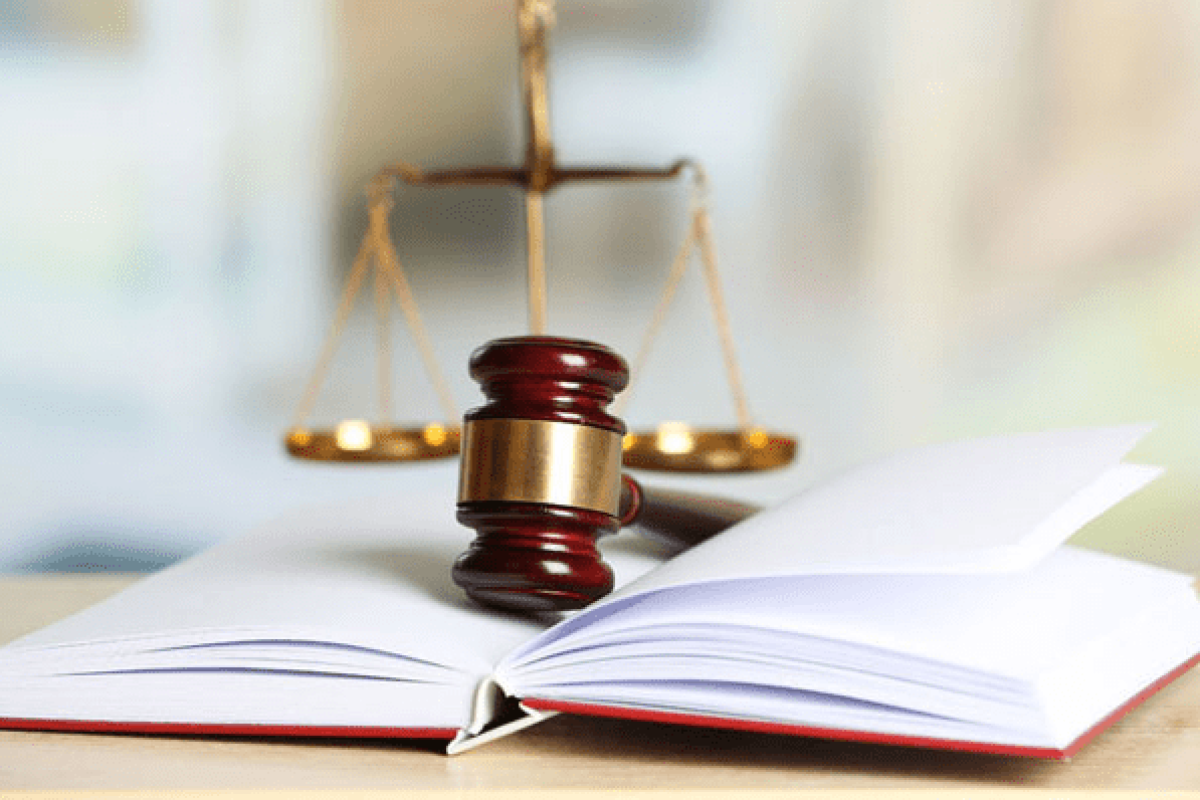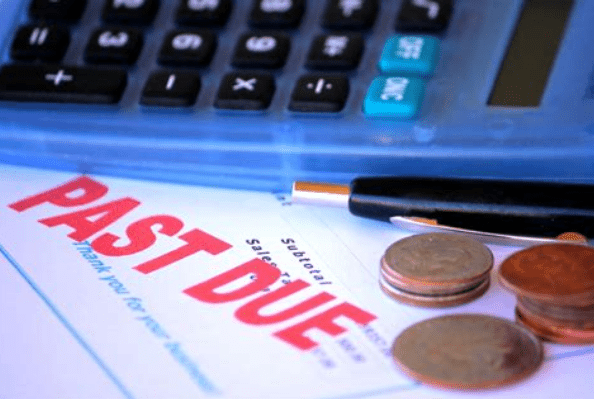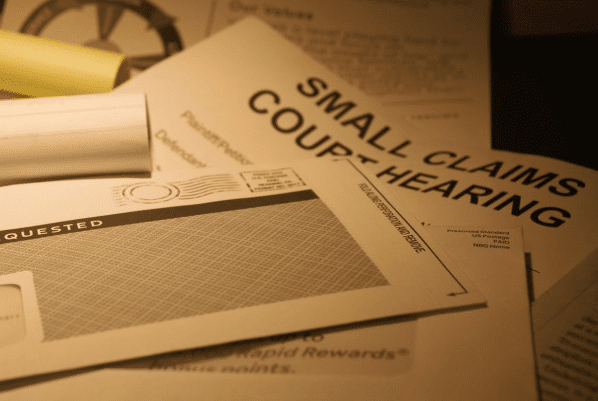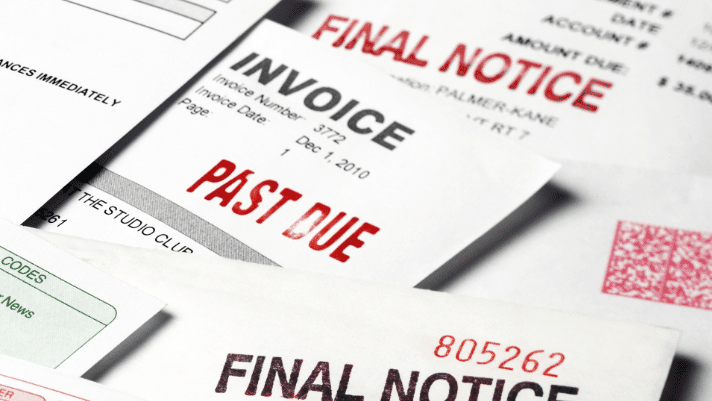Facing a debt collector’s lawsuit in North Dakota can indeed be overwhelming. But you don’t have to face it alone. ZumaZip is here to guide you through the process and help you respond effectively.
When you receive a summons for debt collection in North Dakota, it’s crucial to take action promptly. With ZumaZip, you can learn how to respond to the summons and stop those stressful collection calls.
Let us empower you to navigate this challenging situation with confidence.
If you live in North Dakota and were served with a summons for debt collection from a creditor or debt collection agency, you are probably feeling anxious and worried about what to do next and the ramifications of this lawsuit.
Individuals being subjected to harassment and litigation by debt collectors is, unfortunately, quite common in North Dakota. Why? Because state law authorizes creditors to turn over accounts with revolving balances to debt collectors, even when someone is consistently making monthly payments towards the debt.
If you are tempted to simply ignore the debt collector’s lawsuit, disavow the temptation and prioritize taking action. Why? Because ignoring the summons for debt collection will likely result in the debt collector obtaining a default judgment against you. If that happens, the debt collector will be empowered to seize your assets and garnish your wages. Do not allow this to happen. Be proactive and draft an Answer to the debt collector’s Complaint.
Respond to a debt collection lawsuit in 15 minutes with ZumaZip.
When a defendant files an Answer, it provides a formal response to the allegations contained within the Complaint. You can admit to some, or all, of the allegations. You can deny some, or all, of the allegations. You can also advise the court that there is insufficient information to admit or deny.
Another proactive step you can take in responding to the debt collector’s Complaint is filing a counterclaim. This option may be viable if you believe the creditor or debt collector violated the law, such as the Fair Debt Collection Practices Act.
North Dakota deadline for answering a debt collection summons
According to North Dakota debt collection laws, you must file a written response within 21 days after receiving a debt collection claim. The summons for debt collection indicates what would happen if you miss the deadline and lists all the claims made against you by the debt collector.
After carefully reviewing the summons and complaint, you must provide a written answer before the deadline elapses. If the 21st day after being served is a weekend or holiday, the deadline extends to a subsequent day that isn’t a weekend or holiday. If you fail to answer after 21 days, the plaintiff can go ahead and apply for default judgment without informing you.
A default judgment will put your assets and income at risk if the debt collector enforces the judgment. It can as well impact your credit score negatively. Also, if you fail to plead, appear or defend yourself, the plaintiff will serve you a motion to enter a default judgment and submit the same to the court.
Appearing in action can be as simple as writing to the plaintiff or verbal communication with the plaintiff. Receiving a debt collection summons does not determine a civil action; it’s your Answer that determines how the lawsuit will move forward. This explains why ZumaZip is one of the best ways to prepare your answers, ensuring that the information provided is correct.
Avoid a default judgment by filing a response with ZumaZip.
North Dakota answer to summons forms
Before answering a debt collection summons form, check with the North Dakota Department of Financial Institutions if the debt collector has a valid license. After confirming that the debt collector is genuine, validate the debt to ensure it belongs to you and that you haven’t paid it already.
If the debt is not valid, you can write to the debt collector and inform them to stop contacting you about the debt in question. You can also sue the debt collector if they started the debt collection case outside the Statute of Limitations.
If the debt is valid, you must file a written response admitting to the complaints in the debt collection summons. In a situation where you don’t have enough information to admit or deny a claim, you must state so in your Answer.
The court deems failure to deny a given claim as admittance to the claim. Also, it is advisable to present your defense to the claims made by the debt collector in short and plain statements. If you choose to file a counterclaim, it needs to meet the requirements of a formal complaint. You’ll have to file the counterclaim together with your Answer to the plaintiff’s complaint.
You should deliver the Answer documents to the plaintiff within 21 days after receiving a debt collection claim. The state district court ascertains the period by checking the proof of service documents stating when, where, and how the plaintiff served the debt collection summons.
Use ZumaZip to respond to debt collection lawsuit fast.
The Answer may include some or all of the following:
- Admission of facts alleged by the debt collector.
- Denials of allegations made by the debt collector.
- Affirmative defenses.
- Counterclaims or cross-claims against the debt collector.
In North Dakota, you may not always find online forms to fill in the required information in your Answer. If you don’t find the appropriate answer form on the official North Dakota courts website, you may need to create the answer document by yourself.
Alternatively, you can let ZumaZip help you answer the North Dakota debt collection summons. The platform creates and fills the answer form on your behalf. Then, an attorney will go through the form to check if it’s admissible in court.
Answer filing fees for North Dakota
You’ll pay a filing fee of $50.00 to file your Answer in North Dakota. If you can not raise the amount, you can go ahead and make a fee waiver request.
You must indicate your assets, liabilities, income, and expenses when filling the waiver request form to ascertain you’re unable to afford the filing fee. Also, ensure you file the waiver request simultaneously with your Answer, affidavit of service, and confidential information form.
Make the right defense the right way with ZumaZip.
Steps to respond to a debt collection case in North Dakota
Your debt collection case begins as soon as you receive a summons and complaint from the debt collector. This explains why you need to respond with your defense to the complaint as soon as you receive it. You can choose either of the options listed below after the debt collector serves you with a summons:
- Serve an Answer to the complaint.
- File a motion to dismiss the case.
- Contact the debt collector about settling the debt.
- Consider bankruptcy options.
If you choose to file a motion to dismiss the case, you must file it before serving an Answer. This option applies if you do not believe you were properly served with the summons. The motion may delay the formal answering of the complaint unless denied by a judge. If the judge denies the motion to dismiss the case, you’ll need to serve and file your Answer to the court and plaintiff as outlined in the procedure below:
1. Create your answer document
The answer document includes relevant information from the summons and complaint documents served by the plaintiff. You can use sample answer documents or create your document that follows a specific format. The document must include your personal information, plaintiff information, and court information.
Answer each issue raised in the complaint
To do this, you need to respond to every issue raised by the plaintiff in the complaint document. Read every paragraph carefully and respond by either admitting to the issues raised, denying specific issues, or indicating you don’t have enough information to respond to the complaints.
Respond to debt collectors with ZumaZip and win your case.
2. Assert affirmative defenses
Asserting affirmative defenses in a debt collection case involves introducing evidence that could prevent the debt collector from winning the case if found credible. For example, to successfully use an affirmative defense, you must demonstrate that you do not owe the plaintiff any amount or that the amount you owe is less than what they claimed in the complaint.
However, it’s important to note that inability to pay the debt cannot be used as an affirmative defense in your case. Some examples of affirmative defenses applicable to debt collection civil actions in North Dakota include:
3. File the answer with the court and serve the plaintiff
Arranging the delivery of your answer documents to the debt collector within 21 days after receiving the summons and complaint is crucial. You have the option to physically hand over the answer to the court and plaintiff or mail it to them.
However, if you’re looking for a faster and easier option, you can let ZumaZip prepare your answer document. Did you know that 90% of Americans in debt do not win their cases because they do not know how to respond to a debt collection summons? This is where ZumaZip can be incredibly helpful!
Use ZumaZip and the right affirmative defense to win in court.
Statute of limitations on debt in North Dakota
| North Dakota Statute of Limitations on Debt | |
| Debt Type | Deadline in Years |
| Credit Card | 6 |
| Medical | 6 |
| Auto Loan | 4 |
| State Tax | 6 (10 if not filed) |
| Judgments | 10 |
| Written | 6 |
| Oral | 6 |
Source: Findlaw | |
The statute of limitations in North Dakota determines the timeframe within which a debt collector can legally pursue a debt through civil action. In North Dakota, this period typically varies based on the type of debt:
- Oral Contracts: 6 years
- Written Contracts: 6 years
- Promissory Notes: 6 years
- Open Accounts (e.g., credit cards): 6 years
It’s important to note that certain circumstances can affect the statute of limitations. For instance, if you’re on active duty in the military, have filed for bankruptcy, or were absent from North Dakota, the court may review the limitation period. Additionally, making a partial payment on the debt or providing a written acknowledgment can restart the statute of limitations.
North Dakota legal aid organizations
Legal aid organizations in North Dakota provide free legal services to residents who can’t afford to pay for legal assistance. The Legal Services of North Dakota is an example of such an organization.
Key takeaways
Responding to a debt collection summons is crucial to protecting your rights. Whether you choose to draft your Answer manually or use ZumaZip for a quicker process, here’s a simple procedure to follow:
- Create an Answer Document: Start by drafting a formal response to the court and plaintiff.
- Address Each Issue: Carefully answer each point raised in the Complaint against you.
- Assert Affirmative Defenses: Clearly state any defenses you have against the claims made.
- Submit Your Answer: File the completed Answer with the court and provide a copy to the plaintiff.
By following these steps, you can effectively respond to a debt collection lawsuit and defend your interests.
What is ZumaZip?
ZumaZip is a convenient solution designed to streamline your response to a debt collection lawsuit. Here’s a breakdown of what you can expect when you use ZumaZip:
Firstly, you’ll access our user-friendly web application, which guides you through the process step by step. You’ll be prompted to answer a series of questions related to your specific situation. Once you’ve completed the questionnaire, you have the option to either print out the finalized forms and mail them to the appropriate courts yourself, or you can opt to utilize ZumaZip’s services to file them on your behalf. Additionally, if you choose this option, an attorney will review your document for added peace of mind.
If you’re seeking guidance on how to effectively respond to a debt collection lawsuit, ZumaZip can provide the assistance you need. Feel free to explore our FAQs for more information on what ZumaZip has to offer.
What if I haven’t been sued yet?
If you’ve only received a collections notice, but not a lawsuit, the best way to respond is with a Debt Validation Letter. When a debt collector contacts you in any way, whether it’s by phone or mail, you can respond by formally requesting a debt validation with a Debt Validation Letter . This letter notifies the collector that you dispute the debt and forces them to provide proof you owe the debt. They can’t call you or continue collecting until they provide validation of the debt. This flowchart shows how you can use a Debt Validation Letter to win.
Get started with a Debt Validation Letter here.
How to Answer a Summons for debt collection in all 50 states
Here’s a list of guides on how to respond to a debt collection lawsuit in each state:
- Alabama
- Alaska
- Arizona
- Arkansas
- California
- Colorado
- Connecticut
- Delaware
- Florida
- Georgia
- Hawaii
- Idaho
- Illinois
- Indiana
- Iowa
- Kansas
- Kentucky
- Louisiana
- Maine
- Maryland
- Massachusetts
- Michigan
- Minnesota
- Mississippi
- Missouri
- Montana
- Nebraska
- Nevada
- New Hampshire
- New Jersey
- New Mexico
- New York
- North Carolina
- North Dakota
- Ohio
- Oklahoma
- Oregon
- Pennsylvania
- Rhode Island
- South Carolina
- South Dakota
- Tennessee
- Texas
- Utah
- Vermont; Vermont (Small Claims court)
- Virginia
- Washington
- West Virginia
- Wisconsin
- Wyoming
Guides on how to beat every debt collector
Hey there! Facing off against a debt collector can feel like a daunting challenge, but fear not! We’re here to help you navigate through it all with our handy guides designed to assist you in beating every debt collector you encounter. Whether you’re facing a new lawsuit or dealing with a persistent collector, we’ve got your back. Stay positive, stay informed, and let’s tackle this together!
- Absolute Resolutions Investments LLC
- Accredited Collection Services
- Alliance One
- Amcol Clmbia
- American Recovery Service
- Asset Acceptance LLC
- Asset Recovery Solutions
- Associated Credit Services
- Autovest LLC
- Cach LLC
- Cavalry SPV I LLC
- Cerastes LLC
- Colinfobur
- Covington Credit
- Crown Asset Management
- CTC Debt Collector
- Cypress Financial Recoveries
- Delanor Kemper & Associates
- Eagle Loan of Ohio
- Educap
- Estate Information Services
- FIA Card Services
- Forster & Garbus
- Freshview Solutions
- Fulton Friedman & Gullace LLP
- Harvest Credit Management
- Howard Lee Schiff
- Hudson & Keyse LLC
- Integras Capital Recovery LLC
- Javitch Block
- Jefferson Capital Systems LLC
- LVNV Funding
- Mannbracken
- Mariner Finance
- Medicredit
- Michael J Adams PC
- Michael J Scott
- Midland Funding LLC
- Mullooly, Jeffrey, Rooney & Flynn
- Mountain Land Collections
- MRS Associates
- National Collegiate Trust
- Nationstar Foreclosure
- Northstar Capital Acquisition
- NCEP LLC
- NRC Collection Agency
- OneMain Financial
- Palisades Collection LLC
- Pallida LLC
- Paragon Revenue Group
- Pinnacle Collections Agency
- PMAB LLC
- Portfolio Recovery Associates
- Provest Law
- PYOD LLC
- Reunion Student Loan Finance Corporation
- Revenue Group
- Regents and Associates
- RSIEH
- Salander Enterprises LLC
- Second Round Sub LLC
- Security Credit Services
- Sherman Financial Group
- Suttell and Hammer
- T-Mobile
- Transworld Systems
- Tulsa Teachers Credit Union
- UCB Collection
- Velo Law Office
- Velocity Investments
- Waypoint Resource Group
- Weinberg and Associates
- Wolpoff & Abramson
Settle your medical debt
Having a health challenge is stressful, but dealing medical debt on top of it is overwhelming. Here are some resources on how to manage medical debt.
- Am I Responsible for My Spouse’s Medical Debt?
- Do I Need a Lawyer for Medical Bills?
- Do I Need a Lawyer to Fight Medical Bill Debt?
- Does Bankruptcy Clear Medical Debt?
- How Much Do Collection Agencies Pay for Medical Debt?
- How to Find Medical Debt Forgiveness Programs
- Is There a Statute of Limitations on Medical Bills?
- Medical Debt Statute of Limitations by State
- Summoned to Court for Medical Bills — What Do I Do?
- Summoned to Court for Medical Bills? What to Do Next
Stop calls from Debt Collectors
Do you keep getting calls from an unknown number, only to realize that it’s a debt collector on the other line? If you’ve been called by any of the following numbers, chances are you have collectors coming after you, and we’ll tell you how to stop them.



































